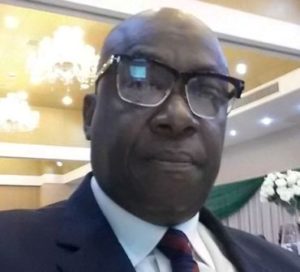ROTIMI ASHER
President Bola Ahmed Tinubu has been implored to restore investors’ confidence in Nigeria’s automobile industry by accelerating the passage and assenting of the National Auto Industry Development Plan (NAIDP) into law.
The former Acting Director General of the National Automotive Design and Development Council (NADDC), Mr. Luqman Mamudu made this call while reacting to the auto policy tumble experienced under the past administration of President Muhammadu Buhari.
Setting an agenda for the new administration, the auto industry expert lamented that failure of the former President Buhari to assent the NAIDP bill has limited the huge contribution the auto industry would have made to the nation’s economy.
He also called for a reversal of the 2020 Finance Act as it affects the automobile industry, which he believes, was ill-advised.
“If the non-assent by the presidency knocked down the bill,” Mamudu lamented, “the 2020 Finance Act knelt on its neck. It was ill-advised and as such the provision should be reversed.
“It had no input from the National Tariff Review Committee as required. The incentive to assemble commercial trucks and buses, which are easier to build locally and requires minimal investment capital was removed.
“Previously, import tariff on FBU (Fully Built Up) commercial vehicles was 35%, while Assemblers had the incentives to import Semi Knocked Down(SKD) kits and Fully Built Up vehicles at 10% tariffs respectively.

“Curiously, in the Finance Act, Agricultural tractors for which NAIDP provided 0% import duty to encourage Agricultural was increased to 5%. No one knows the rationale. As a result of 2020 tariff structure, local assembly for commercial vehicles categories has practically disappeared but for a few firms like Dangote, Shacman and FAW.
“Everyone is now importing both new and used vehicles. These have now flooded the entire streets of Nigeria. Nigeria is now the biggest destination for used vehicles. The arguments by those who engineered it was that the move was to reduce prices of commercial vehicles to the masses.
Prices went up instead. The truth is that price upward push factors were mainly others. This was during COVID19 and the increasing fall of Naira. It was simply an excuse to slash the tariff on SUV, which was formally 70% but now 25% or thereabout. Established local capacity to build SUVs has also stalled more or less.”
To this end, therefore, in addition to the urgent passage of the NAIDP, Mamudu, also the former NADDC’s Director of Policy and Planning, advised as follows:
- The lands already acquired by NADDC in Kaduna, Oshogbo and Nnewi for automotive Components and parts production should be realized. This will drive local content and massive employment. To be competitive in the AfCFTA this project is a must do. It’s only high local content that will qualify you to sell automotive products across Africa duty free. If you don’t, other Africa countries will take advantage of our over 1m vehicles per annum market.
- Automotive Safety laboratory for emissions in Lagos, Components and parts LABORATORY in Enugu, and Materials laboratory in Zaria should be completed and made functional. This is critical for homologation in the industry.
- The fiscal incentive must be adjusted to take full advantage of limits allowed by member state for industry they wish to protect. Secondly, in order for the Components and parts industry to grow we need to ring fence the tariff code for automotive manufacturers. Nigeria has over 12 million vehicles on the road. We can locally make parts and Components to maintain them as well as serve the emerging assembly industry. All these translate to jobs. This is what Nigeria needs now and
- Lastly, this is not only for automotive industry. But the industry particularly faces challenges in sourcing FOREX. My recommendation which is nothing new is for the incoming government to scrap parallel market for FOREX. There should be only one exchange rate for Naira. Domiciliary account should be scrapped. Those who require FOREX should state the purpose and apply based on funds in their account.
©Copyright MOTORING WORLD INTERNATIONAL. All rights reserved. Materials, photographs, illustrations and other digital content on this website, may not be reproduced, published, broadcast, rewritten or redistributed in whole or in part without prior written permission from Motoring World International
Contact: [email protected]




